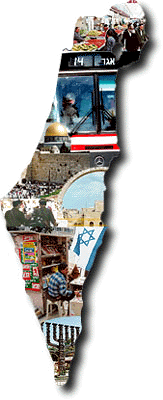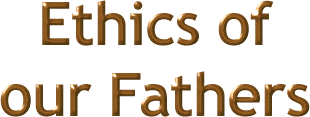Light Lines - Vayeshev / Chanukah
Parshat Vayeshev / Chanukah
25 Kislev 5760 / 4 December 1999
Ohr Somayach Home Page
T hus we begin the special prayer of thanks we add to our regular prayers on Chanukah. We allude to the spiritual danger which faced our ancestors during the reign of Antiochus the powerful Hellenist tyrant and thank G-d for granting victory to "the few against the many and the weak against the strong."
How did these Hellenists attempt to subvert the Jewish People and influence them to accept their pagan beliefs?
They did so, our Talmudic Sages tell us, by decreeing that any Jew practicing one of three commandments would be put to death. These three commandments were Chodesh (the sanctification of the month upon sighting of the new moon), Shabbat (the observance of the Sabbath) and Milah (circumcision).
What is the common denominator of these three mitzvot which defines both the essence of the Hellenist threat and the significance of our salvation which Chanukah celebrates?
Human slavery takes many forms. In its most literal sense slavery refers to economic servitude to an exploiting master. But a man can be a slave to time, to creativity and to passion. While literal slavery is virtually a thing of the past, these extended forms of slavery have always been — and still are — very much a part of the human condition. It was G-d's special gift to His beloved people to provide them with three mitzvot that would liberate them from such enslavement.
Chodesh — The very first mitzvah commanded to the Jewish People as they were preparing to leave Egypt was "This Chodesh (month) shall be yours as the first of months." This was a directive to the Sanhedrin — the Torah leadership of the nation — to determine the calendar of the celebration of all holidays and festivals based on their astronomic calculations and the testimony of witnesses who had sighted the new moon. The word chodesh, month, in the Hebrew lunar calendar is spelled with the same letters as the word chadash (new). This is in stark contrast to the word shanah, meaning year, describing the solar calendar of other nations whose months are artificial units unrelated to the cycle of heavenly bodies. The word shanah corresponds to yashan (old).
"Chadash shall be yours," says the Creator to His people on the threshold of liberation from physical enslavement, the Exodus from Egypt. You will be liberated as well from the enslavement of time, for you will be given the power to determine the time of your sacred season, free from the immutable pattern of a solar calendar. You will be a dynamic people capable of casting off the habitual chains of old behavior in order to discover new energy for self-improvement, signified by the sanctification of the new moon — Chodesh.
Shabbat — The spirit of this sacred day of rest is liberation from man's passion for creativity. When the first man was created, his Creator commissioned him to "conquer the world," i.e., to fill the world with his progeny and harness all of nature to serve them. Creativity and conquest can, however, lead to overkill, with the created man gaining the illusion that he is the creator. The halt to creative effort that is mandated by Shabbat is the liberator from this enslavement to creativity and conquest.
Milah — First commanded to Abraham, the father of the Jewish Nation, the mitzvah of circumcising male children is the key to liberation from physical passion. Before he circumcised himself his name was Avram, whose letters have a mathematical value of 243. Afterwards he is Abraham, 248. Our Sages explain that there are 248 organs and limbs in the human body. Before circumcision, our Patriarch had complete control over 243 of them but lacked such power over his two eyes, two ears and his reproductive organ. After circumcision he achieved the goal that his Creator had set for him — "to be complete." He achieved for himself, and for all his descendants who would follow his example, liberation from the physical passions stimulated by what they see and hear.
The Greeks were the original champions of democracy and political freedom. But, paradoxically, their Hellenist culture was founded on enslavement to time, to creativity and to passion. They saw the Jewish fulfillment of the aforementioned mitzvot as a challenge to their culture and therefore attempted to eradicate it through cruel decrees. Many Jews died martyrs' deaths in order to preserve their sacred heritage of freedom until G-d inspired the Maccabeans to revolt against the superior Greek forces and rewarded them with a miraculous victory.
Freedom versus slavery is also the classical struggle between light and darkness. Chanukah gives us an opportunity to kindle the lights representing freedom from the darkness of all forms of enslavement and to thank G-d for enabling us to enjoy the fruits of such liberation in every generation, as it says in the special Chanukah prayer — "in those days and in our own time."
|
Ohr Somayach Home Page |
 Selections from classical Torah sources which express the special relationship between the People of Israel and Eretz Yisrael Tekoah The oil of the Menorah is the subject of the Chanukah miracle. Where did this oil for the Menorah, and for the flour offerings, come from? Tekoah was the city in the ancient Land of Israel that was the prime source of the olive oil used in the Holy Temple. The Biblical source for this city as a source of oil is the story of King David's military commander-in-chief, Yoav, who employed a wise woman from Tekoah to put on a dramatic performance before the king in order to effect reconciliation between him and his son Avshalom, after Avshalom's act of fratricide. Olive oil makes one wise, say our Sages, and the abundance of such oil is what produced the wise woman of Tekoah who succeeded in her difficult task. Tekoah is today the name of a thriving Jewish settlement established in the Judean Desert shortly after the Six-Day War. |
Light Insight | Love of the Land | Ethics from our Fathers Ohr Somayach Home Page |
This criterion for success is certainly not understood to mean that any group endeavor which has as its goal a non-religious purpose will be unsuc cessful. Rather, no matter what the group's goal may be, whether for a sacred or secular cause, what determines its ultimate success is the motivation that guides those gathered. Even if a gathering has no direct connection with a mitzvah it will be blessed with success if its organizers are motivated by a desire to serve Heaven through it. On the other hand, even if the gathering is convened for the purpose of a mitzvah it is doomed to failure if its organizers are motivated purely by a desire for their own honor or for anything else not for Heaven's sake.
Light Insight | Love of the Land | Ethics from our Fathers Ohr Somayach Home Page |
Produced by the Office of Communications
Editor: Raphael Scott Leban
Production: Eliezer Shapiro
HTML Production: Eli Ballon
© 1999 Ohr Somayach International - All rights reserved. This publication may be distributed to another person intact without prior permission. We also encourage you to include this material in other publications, such as synagogue newsletters. However, we ask that you contact us beforehand for permission, and then send us a sample issue.
This publication is available via E-Mail
Ohr Somayach Institutions is an international network of Yeshivot and outreach centers, with branches in North America, Europe, South Africa and South America. The Central Campus in Jerusalem provides a full range of educational services for over 685 full-time students.








